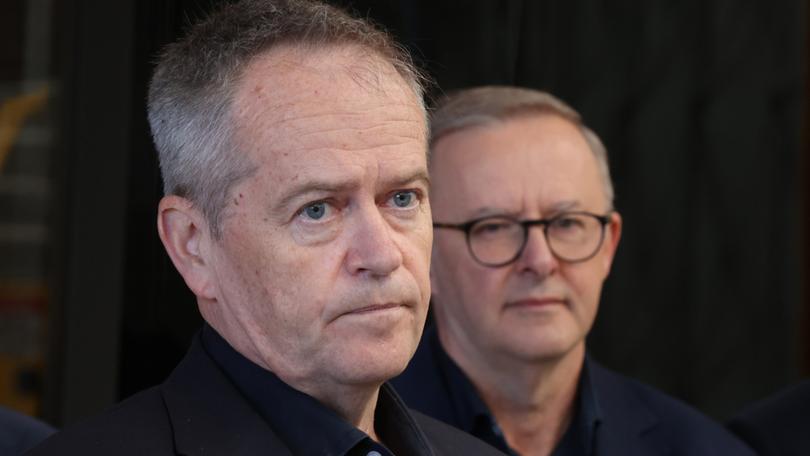Anthony Albanese remains vague on negative gearing
Anthony Albanese has again refused to rule out making changes to negative gearing and capital gains tax, as the Coalition accuse the Government of treating voters like mugs.

Anthony Albanese has again refused to rule out making changes to negative gearing and capital gains tax concessions, as the Coalition take aim at the Government for treating voters like mugs.
After days of dancing around questions of whether or not he was planning to take changes to the tax concessions to the next election, the Prime Minister on Friday remained vague.
“Just to clarify, what we are doing is what we have before the Parliament. I talk about what we’re doing, not what we’re not doing,” he said.
Sign up to The Nightly's newsletters.
Get the first look at the digital newspaper, curated daily stories and breaking headlines delivered to your inbox.
By continuing you agree to our Terms and Privacy Policy.Asked again if it was “still not ruled out”, Mr Albanese was no clearer.
“I have said what we’re doing, and I have said what we’re not doing,” he said.
“What we’re doing is very clear, which is our Homes for Australia plan. That is what we’re doing. I am saying that what we are doing, and I’m saying that is our focus and only focus is on that.”
In the days since it was revealed Treasury had been modelling potential changes to the tax scheme, Mr Albanese has been criticised for failing to provide a straight answer over what Labor’s plans are.
He has insisted it is not Labor policy, but given his language has been reminiscent of the lead up to the Government’s changes to stage-three tax cuts, he has failed to completely extinguish the possibility of a backflip.
He has confirmed Treasury was examining options surrounding the concessions, but that the request had not come from him.
He could not answer whether Treasurer Jim Chalmers had directed his department to do the work, prompting Opposition Leader Peter Dutton to declare the two were “at war” with each other.
Earlier, Bill Shorten had been forced to backtrack after getting himself into knots over Labor’s position on potential changes.
In his weekly panel with Mr Dutton on the Today Show, the Opposition Leader joked that Mr Shorten had given his 2019 election policy to Mr Albanese.
“I think Billy has, I think he’s slipped the policy under the prime minister’s door, the PM’s woken up and he’s brushed it off and he thought, Bill was hopeless in 2019 and he could pull it off,” Mr Dutton said.
Asked if he would end the speculation and rule out changes to the tax breaks, the retiring NDIS Minister stumbled over his words.
“I’m absolutely unaware and sure that we’re not taking the policy to the next election, the PM’s already ruled – made it very clear,” Mr Shorten said.
After being reminded that Mr Albanese had not ruled it out, just that he’s “got no plans”, Mr Shorten adjusted his wording.
“Yeah, I’m very sure we’re not taking our 2019 policies to the 2025 election, there you go,” Mr Shorten said.
Mr Dutton on Friday claimed changes to negative gearing would “drive up rents and distort the housing market”, driving young Australians even further away from the dream of home ownership.
“It’s no wonder that there is a housing crisis in our country, and the Treasurer dumps the policy and then he jumps on a plane and lands it in the Prime Minister’s lap,” Mr Shorten said.
“The Prime Minister hasn’t ruled it out. This is the problem. And the Government doesn’t know what they’re doing.”
But independent senator David Pocock urged a “sensible middle path to reform” on the tax breaks.
His proposal with Jacqui Lambie would “grandfather existing arrangements, and then limit negative gearing to one interest going forward, and only have a capital gains tax discount for new builds”, and would incentivise supply, not throttle it.
“That would save you $15b - $16b over the next 10 years. That could be directly invested into social affordable housing to deal with more supply, which we desperately need,” Mr Pocock told ABC Radio.
“I think there are really sensible ways, ways forward, particularly when you know 70 per cent of Australians who own investment properties only own one.
“We are in a housing crisis, and I’m concerned politicians aren’t quite clocking just how bad this is across the country.
“We should be talking about tax reform, planning reform, stamp duty, migration.
“We need to be having a sensible conversation about all of these things and then finding a way forward.”

